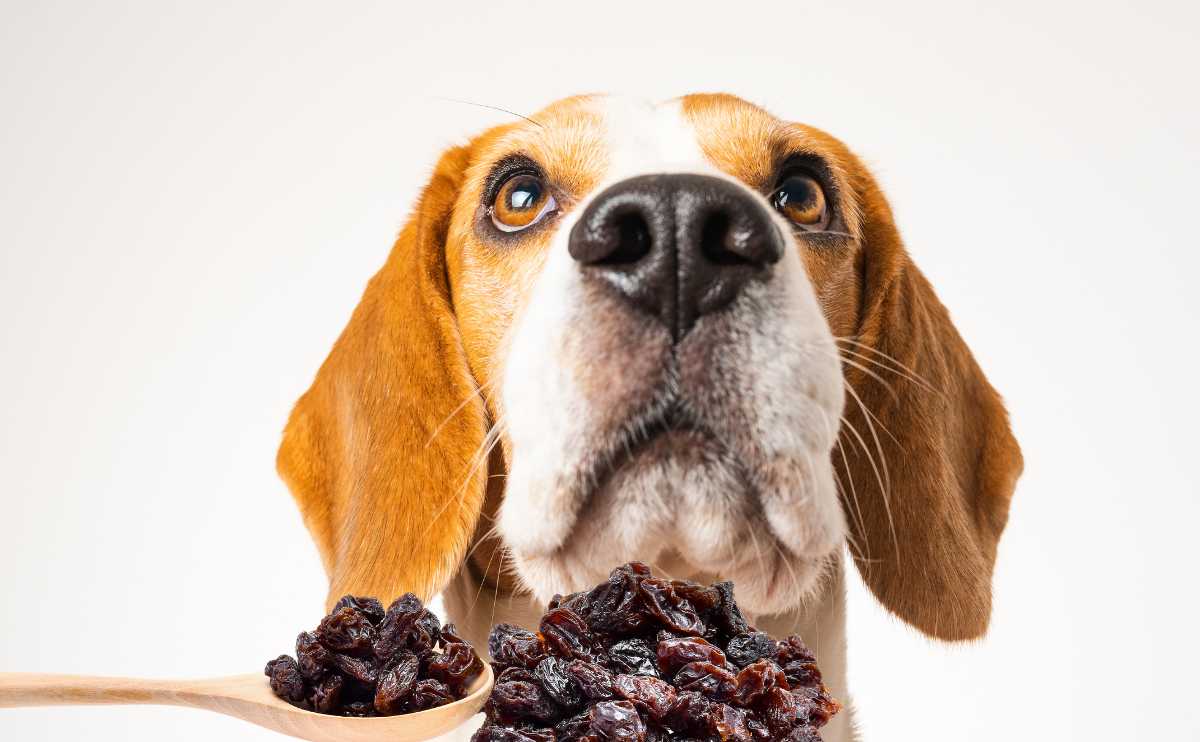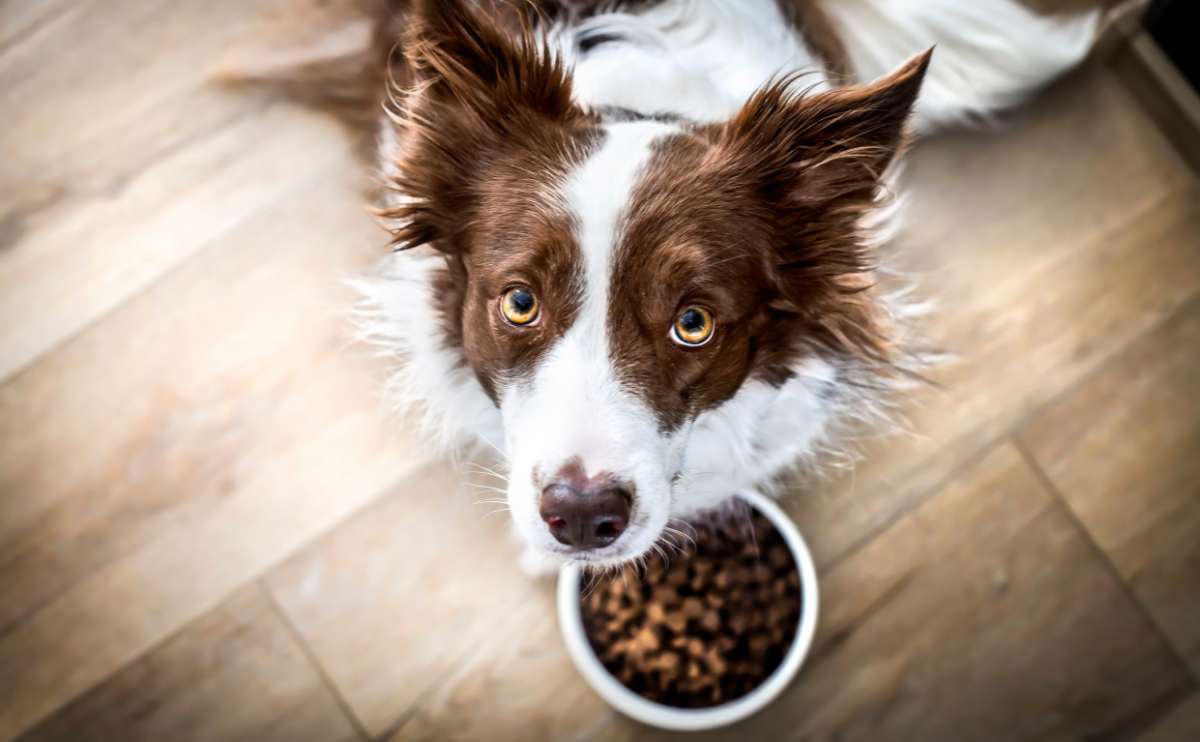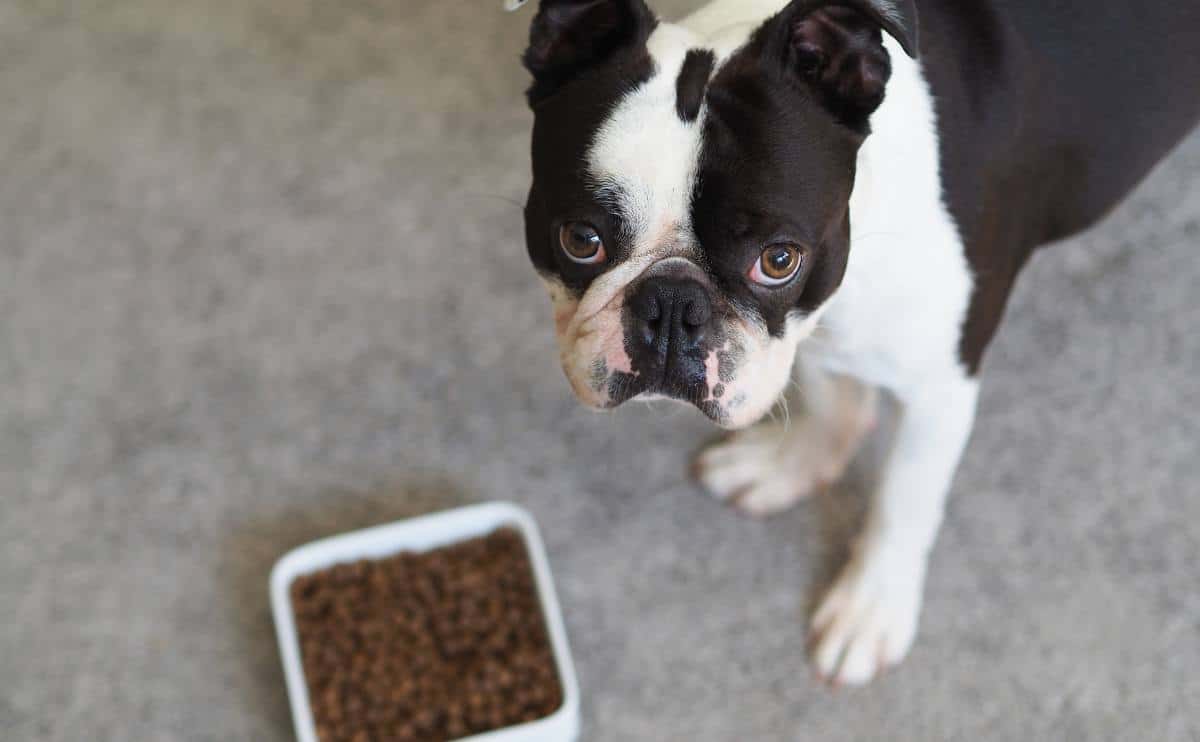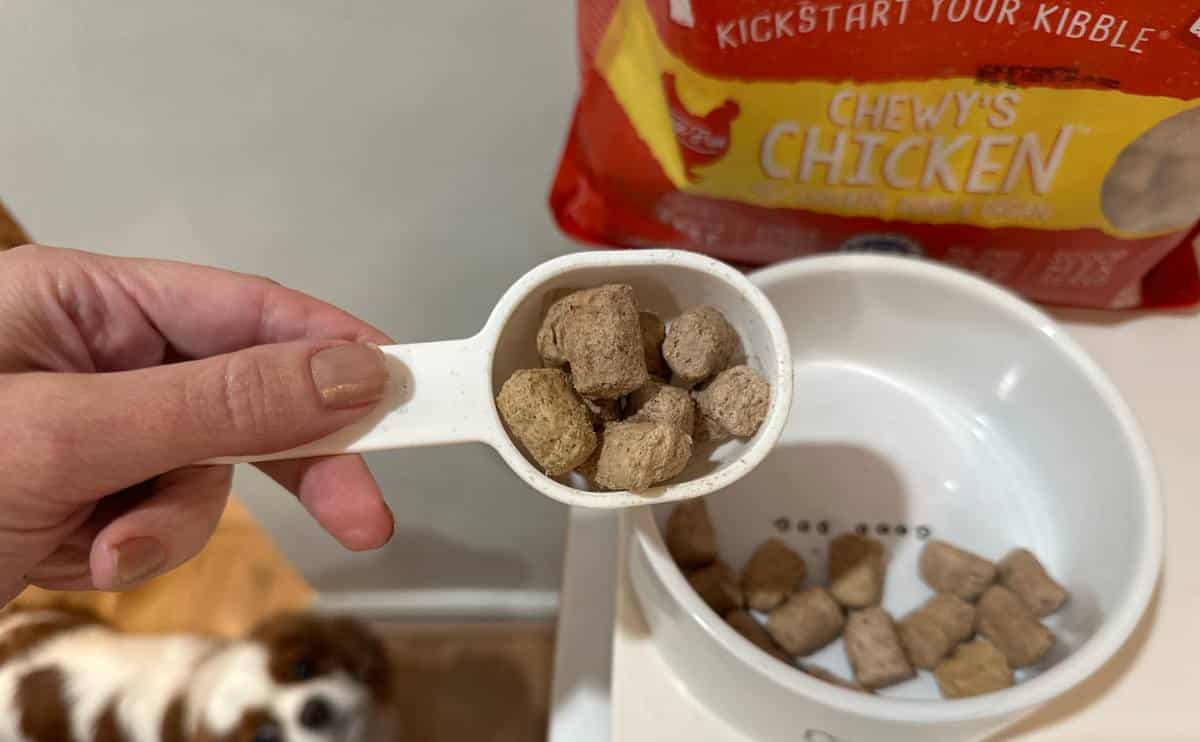When you purchase through links on our site, we may earn a commission. Here’s how it works.

We know that not all human foods are safe for canine consumption, but it can be hard to prevent our pets from sneaking a bite of food from the table, an outstretched hand, or licking up crumbs dropped on the floor. One healthy snack food that is common in human kitchens is raisins. Sharing that oatmeal raisin cookie with your pup might be tempting, but can dogs eat raisins? Unfortunately, raisins are not safe for dogs to eat.
- Can Dogs Eat Raisins?
- What To Do If Your Dog Eats Raisins
- What A Veterinarian Says
- What Are The Symptoms Of Raisin Poisoning In Dogs?
- Diagnosis & Treatment For Raisin Poisoning In Dogs
- What If My Dog Ate Just One Raisin? Do I Still Need To Go To The Vet?
- Looking For Safe, Healthy Dog Treats?
- Why Trust Canine Journal?
Can Dogs Eat Raisins?
Dogs should not eat raisins or grapes. These are both toxic to canines. Ingestion of them can lead to acute kidney injury and failure, as well as inhibit urine production. Both fresh grapes and the dried version are dangerous, along with currants and sultanas.
Scientists have long wondered and researched to answer the question of why raisins and grapes are toxic to dogs. There has been much debate on the subject, with some believing the toxicity is due to a naturally occurring mycotoxin produced by fungus or mold in the fruit. More recent research investigated the high concentrations of tartaric acid and potassium bitartrate found in grapes. Animal species with sensitivity to tartaric acid (also called cream of tartar) may experience kidney failure as it starts to interfere with kidney function.
Grapes, fresh or dry, also contain tannins, flavonoids, and monosaccharides, which canines cannot metabolize. These elements cause damage to the body and likely play a role in the toxic effects this fruit has on canines.
What To Do If Your Dog Eats Raisins
If you suspect your dog has eaten a raisin or grape, it is best to contact the veterinarian as soon as possible. If your pet is showing signs of serious symptoms, including nausea, vomiting, and increased blood pressure, or is having respiratory distress, take him to the nearest emergency vet.
Even a small amount of dried or fresh grapes poses a significant danger to dogs. Do not take any risks, especially if you are unsure how many raisins your pup has consumed. If you cannot reach your vet or the emergency vet, contact the Pet Poison Helpline.
What A Veterinarian Says
According to veterinarian Rebecca MacMillan, “Raisins and grapes are known to be potentially toxic to our canine companions. The exact mechanism of action is unknown, but animals that succumb to their toxic effect can develop kidney failure, which could be fatal if left untreated.”
Dr. MacMillan adds, “The problem is that we also don’t know exactly how many raisins it will take to make your dog unwell. For some pets, just eating a couple of grapes or raisins can cause serious problems, but other dogs may get away with eating lots and be ok. This variable nature means that we just can’t safely predict which dogs will become sick or not, so it’s usually safest to avoid giving them any at all. This also means avoiding any products that might contain grapes or raisins, such as fruit cakes, cereal bars, fruit bread or bagels, grape jelly, and grape juice.”
Dr. MacMillan shares her experience treating dogs who have eaten raisins. “If your dog has accidentally eaten raisins, then call your vet immediately for advice. One case I treated in my clinic was a dog that had consumed a slice of Christmas cake. This tasty treat was stuffed full of dried fruits, including toxic raisins. The dog came straight down to the practice, and I was able to administer some medication to induce emesis (make him vomit). Within minutes, he successfully produced the partially digested slice of cake.”
“We were then able to administer activated charcoal to prevent the absorption of any remaining toxins in his stomach. We took a blood sample to check his kidney parameters and advised the owner to bring him back 48 hours later to repeat this blood sample. Thankfully, this showed that his kidney values remained stable, and no further action was required other than monitoring him at home. Most dogs do well, like this case, if they are brought into the practice as soon after ingestion as possible.”
What Are The Symptoms Of Raisin Poisoning In Dogs?

Pups can show poisoning symptoms within 6 to 24 hours after ingesting a raisin or grape. Some dogs may not show visible symptoms until a day or two later. Kidney failure will start to set in over about three days, and owners may begin to see symptoms including:
- Lethargy
- Lack of appetite
- Diarrhea
- Vomiting
- Abdominal pain or nausea
- Ammonia odor on the breath
- Excessive thirst
- Decreased or excessive urination
- Increased blood pressure
- Seizures
- Mouth ulcers
- Dehydration
Diagnosis & Treatment For Raisin Poisoning In Dogs
It can be tricky to diagnose raisin poisoning as many of the early symptoms are similar to other gastrointestinal upsets. If your pup ingests raisins, your veterinarian will likely run some diagnostic tests that include a urinalysis, complete blood count, and a serum biochemistry profile.
Once diagnosed, your vet will try to block the body from absorbing the toxins. The first step is to induce vomiting to rid the body of the contaminant. Veterinarians then administer activated charcoal to help prevent absorption of the toxin in the intestine or stomach. Along with vomiting and activated charcoal, your pup may need intravenous fluids to help protect the kidneys. Medications can help control nausea, vomiting, and blood pressure and keep blood flowing to the kidneys.
Pets are often hospitalized for at least 48 to 72 hours after ingesting raisins or grapes. They will remain under observation while veterinarians check to be sure the body produces urine correctly. If renal failure has started, medications may help, and some pets may need hemodialysis or peritoneal dialysis. The chance of recovery relies on a pup receiving care as soon as possible. Even in the best cases, full kidney recovery is unlikely. The earlier your pup gets treatment, the better his chances of recovery.
“For animals that have consumed raisins several hours before being brought to the vet, the prognosis could be less favorable. The vet won’t be able to induce vomiting as the raisins will have already passed through the stomach and are being absorbed lower down in the digestive tract. Instead, your vet will have to admit your dog for hospitalization and aggressive fluid therapy via a drip to help protect your pet’s kidneys.”
-Dr. Rebecca MacMillan, BVetMed BSAVA PGCertSAM MRCVS
Raisins are a dangerous food for dogs. Emergencies such as pet poisoning can be costly, so be sure to consider pet insurance for your beloved pup before they start having major health concerns. In the case of poisoning, you will need to act quickly. Having insurance in place will help you focus on your pet’s recovery, not the financial burden.
What If My Dog Ate Just One Raisin? Do I Still Need To Go To The Vet?

Raisins do not affect all dogs the same, so in some cases, eating just one raisin will not be cause for concern. However, this is not something you can know for sure. Because of the high toxicity risk, even just one raisin needs a call to the vet.
Looking For Safe, Healthy Dog Treats?
Fortunately, there are plenty of nutritious treat options for our pets. You may be interested in low-calorie or vegan dog treats. Freeze-dried treats offer raw meat flavor in a safe treat form. You may prefer organic treats or may want to make your own. Treats should only make up 10% of your dog’s daily calorie intake and should never replace regular meals or high-quality dog food.
Why Trust Canine Journal?
Danielle is a pet owner with over 30 years of experience. She has worked as a professional researcher for many years. Danielle is dedicated to providing the best research and information to help pet owners. She spends countless hours researching the latest pet care, health, nutrition, and training developments. Danielle has tested and researched over 100 brands of dog food and counting. She works alongside a professional and experienced team to bring the best, most accurate, and up-to-date information to our readers.
Tagged With: Food Safety

